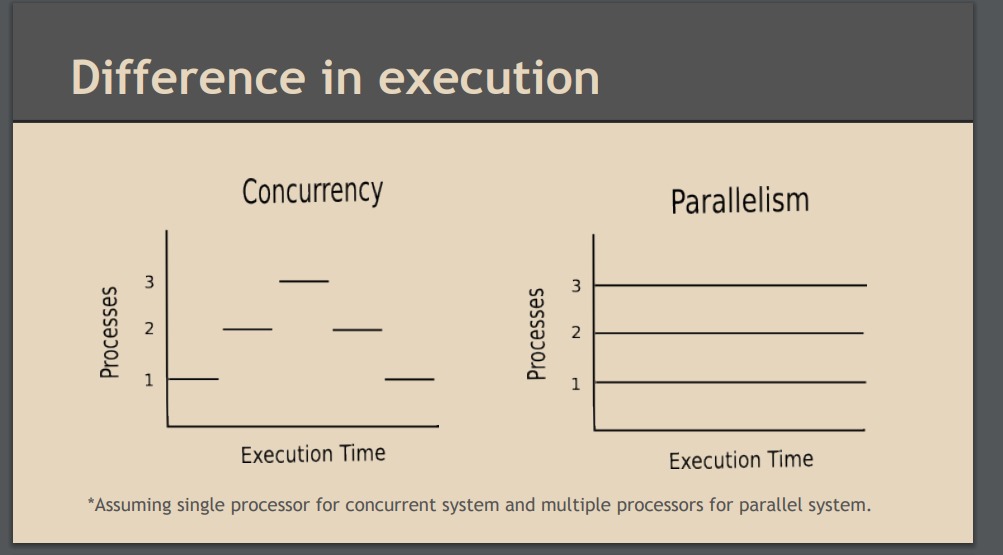Concurrency vs Parallelism

Definitions
- Concurrency is the act of running and managing multiple computations at the same time.
- Parallelism is the act of running multiple computations simultaneously.
All parallelism is concurrency, but not all concurrency is parallelism. We can have concurrency without parallelism. Example:
- A single-core CPU can run multiple processes, but only one at a time. So, the processes are running concurrently, but not in parallel.
- A multi-core CPU can run multiple processes simultaneously. So, the processes are running concurrently and in parallel.
Processes, Threads and Routines
- Process is the program in exacution on the OS.
- Threads are the units of execution within a process.
- Coroutine is similar to a thread, but it is cooperative, not preemptive. The routine must explicitly give up control to the scheduler.
You can have multiple threads in a process, and in the threads you can have multiple coroutines without blocking the thread.
Litmus Test
How to tell if a program run in concurrent or parallel?
- Single-core CPU: All programs run concurrently, but not in parallel.
- Multi-core CPU: All programs run concurrently and may run in parallel sometimes.